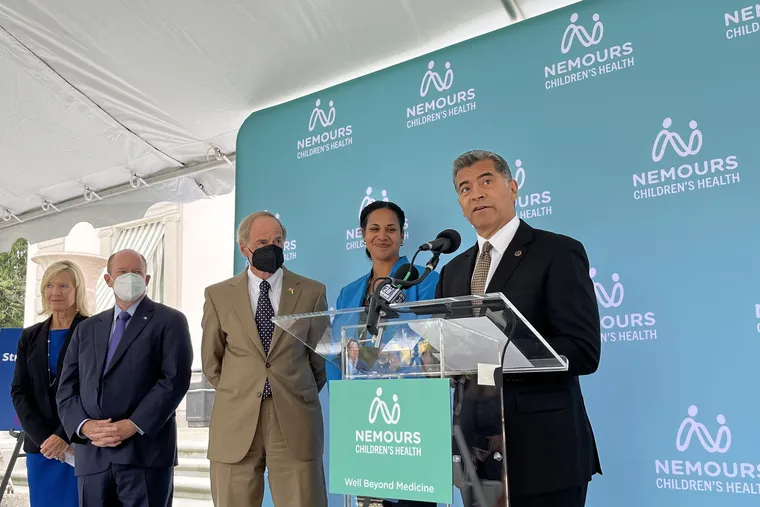[ad_1]
STATEN ISLAND, N.Y. – Luke Nasta, executive director of Camelot of Staten Island, has never held back on his criticism of government response to the opioid crisis.
During the early days of the coronavirus (COVID-19) pandemic, he questioned why the opioid epidemic wasn’t being treated with the same urgency as COVID-19 when it continues to kill Americans in record-high numbers each year.
Nasta’s most recent criticism, and anger, is toward Gov. Kathy Hochul’s proposed Fiscal Year 2024 budget, which he said, “reflects the near invisible attention and state support required to address the ever-mounting drug misuse overdose deaths.”
He has continuously praised Hochul for repeatedly speaking about the severity of the opioid crisis, but said her budget allocation, which he called “flat,” does not match her words.
“[She] would have never treated COVID in this manner. Is the message that these people are expendable? That these individuals and their families are expendable? It’s health discrimination. Why isn’t this a priority?” Nasta said to the Advance/SILive.com.
The Fiscal Year (FY) 2024 proposed budget allocated $1.2 billion in funding to the state Office of Addiction Services and Supports (OASAS), which is responsible for the state’s substance use disorder treatment and prevention programs.
The $1.2 billion proposed for 2024 is a net decrease of $240.3 million from Fiscal Year 2023, which, according to the proposal, is “attributable to the removal of one-time appropriations for healthcare and mental hygiene worker bonuses and the Opioid Stewardship Fund, which was fully appropriated in FY 2023.”
The state constitution mandates the approval of the budget by April 1. Until then, the legislative committees will take public testimony of the budget, legislative hearings will be held, and changes will likely be made before it is finalized.
Nasta said there is no specific dollar amount he thinks would be enough, but said the “flat budget” is a “philosophical and a policy shortfall.”
“Compare it to what President Biden, the U.S. Senate and Congress did. Two years running, Biden said he was going to add $3.5 million to the national block grant program that goes to all the states for treatment and prevention. The Senate and Congress said it wasn’t good enough, it should have been $5 billion. Now that’s addressing the epidemic, in the billions. It’s not decreasing or keeping it stable, it’s increasing,” Nasta said.
Hochul’s office did not specifically address the issues raised by Nasta, but offered the following statement, “As one of the millions of Americans who has lost a loved one to the opioid epidemic, Governor Hochul has a deep and personal commitment to fighting this crisis.”
“In addition to continuing the historic level of funding she secured for this effort last year, her FY 2024 budget embraces an aggressive, all-hands-on-deck approach that supports a comprehensive system of prevention, treatment, harm reduction, and recovery services across New York State,” said Hochul spokesman Justin Mason.
Hochul’s office has continued to highlight the many funding initiatives and new treatment and recovery programs enacted since becoming governor.
In December 2022, Hochul signed five pieces of legislation into law that are focused on different aspects of treatment and prevention: establishing a public-private partnership for nightlife establishments to receive naloxone for free; prohibits copayments from being collected at opioid treatment programs; requiring the state Department of Health to publish reports on its website detailing the sales of opioids sold in New York; develops training materials to screen for substance misuse; and requiring doctors to consider non-opioid alternative treatments for patients experiencing pain before prescribing opioids.
In January, $5.25 million in federal funding was used to establish six substance use and prevention coalitions to engage vulnerable and isolated communities and populations.
In February, the state opened nearly $9 million in grants for innovative treatment programs to combat opioid misuse that would support 18 providers throughout the state, in addition to the availability of up to $7.5 million in grants that would help develop up to 15 programs offering safe, effective treatment for opioid use disorder.
Hochul has also expanded mobile medication substance use disorder treatment services, expanded telehealth services, established crisis stabilization centers, and provided $20 million in support for addiction services providers affected by COVID-19, among other initiatives and funding supports, the state said.
Nasta said that while the initiatives and rounds of funding aren’t a bad thing, often times money goes unspent, either because of more government red tape or because providers are unaware they qualify and need to apply.
Camelot’s two treatment facilities that have not been built years after funding was allocated and the years-long delayed renovation of Amethyst House are examples he gave of government red tape and “funding the state takes credit for allocating, but doesn’t get used.”
“We have to talk in terms of billions for a full state if you’re going to impact this scourge, this plague, other than that it’s just window dressing; $175,000 here for a community coalition? Okay, that’s fine, I have no criticism of it, but that’s not impactful. It’s not enough,” Nasta said.
RELATED STORIES:
>>A long-awaited women’s treatment facility is expected to take shape on Staten Island
>>Plagued by delays, Camelot can soon begin construction of new S.I. drug treatment facility
>>Amethyst House, shuttered after controversy, looking to staff, reopen S.I. women’s sober facility
>>Artistic mom with ‘huge heart’ died seeking recovery on Staten Island
FOLLOW KRISTIN F. DALTON ON TWITTER.
[ad_2]
Source link



